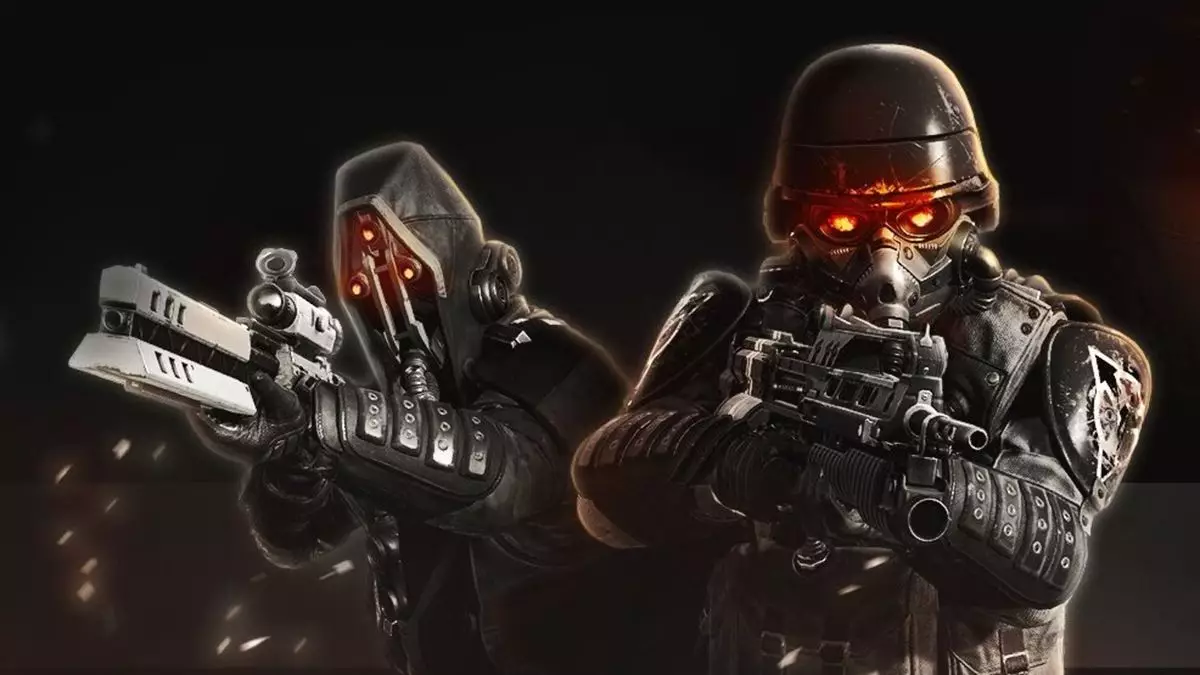In the gaming world, crossovers can ignite excitement and nostalgia, but they can also spark controversy, as recently observed in the Helldivers 2 community. Arrowhead Game Studios, creators of the game, have faced considerable backlash regarding their pricing strategy for new, exclusive cosmetics inspired by Killzone, particularly from the iconic Helghast faction. While the allure of nostalgic visuals can be enticing, the premium price tag associated with this crossover has left many players feeling alienated and frustrated.
The revenue models for live-service games often lead developers down a convoluted path of monetization strategies. The fundamental issue revolves around the tension between creating visually appealing content and ensuring it remains accessible to a diverse player base. When Arrowhead announced their pricing structure for the crossover cosmetics, it quickly became apparent that they had misread their audience’s expectations, resulting in a swift and negative reaction from players who felt the costs were excessive.
Amidst the rising tide of discontent, Arrowhead’s CEO Shams Jorjani took to Discord to address the community directly, offering a glimpse into the company’s perspective. Initially, his comments seemed to deflect responsibility, suggesting that such pricing structures were part of learning how to navigate a live-service model. He emphasized the optionality of the purchase and hinted that future sales would support free content for the overall community. While the intent behind his words might have been to alleviate concerns, it inadvertently deepened frustrations for many players who felt their loyalty was being overshadowed by profit motives.
Critics of Jorjani’s approach highlighted that merely framing these transactions as optional fails to tackle the greater concern at hand: the price-to-value ratio. Players are not only contesting the additional costs; they are also questioning the integrity of the game’s engagement with its community. Despite his assurance that the studio was analyzing player feedback and potential changes for future content, the initial misstep left a significant mark.
The financial backdrop of video gaming reveals an intricate dance between community expectations and corporate aspirations. Arrowhead’s decision to implement higher pricing for the Killzone crossover cosmetics mirrors trends seen across the industry. Major studios often lean toward premium pricing strategies during collaborations, a move that can sometimes drive a wedge between them and their player base.
It is vital for studios to strike a delicate balance between profitability and community goodwill. Given Helldivers 2’s recent entry into the competitive sphere of live-service gaming, the community’s reaction underscores the necessity of understanding consumer sentiment. The backlash highlights the potential pitfalls of aggressive monetization, especially when players feel they are being exploited rather than engaged.
As the discussion surrounding Helldivers 2 continues, the path forward remains fraught with challenges. While Jorjani’s later comments indicated that the studio is taking the backlash seriously and aims to learn from the experience, the reality is that changes may not come in time for the current crossover event. The planned transition to part two of the crossover promises new cosmetics and a player’s success-based reward, but without a shift in pricing strategy, skepticism may linger among the community.
Ultimately, the gaming industry is ever-evolving, and so are the relationships between developers and players. Arrowhead’s experience serves as a relevant case study for other game studios navigating similar waters. Engaging in transparent dialogue with players, being responsive to feedback, and recognizing the fundamental value of community trust will be vital as they forge ahead. The aim should always be to enrich player experiences without compromising the essence of the game itself. As Arrowhead reflects on this situation, the focus should shift towards building a sustainable and mutually beneficial ecosystem that respects the community they serve. In a landscape where nostalgia is both a powerful draw and a potential pitfall, gaming companies must tread carefully to ensure they maintain a loyal and engaged player base.

